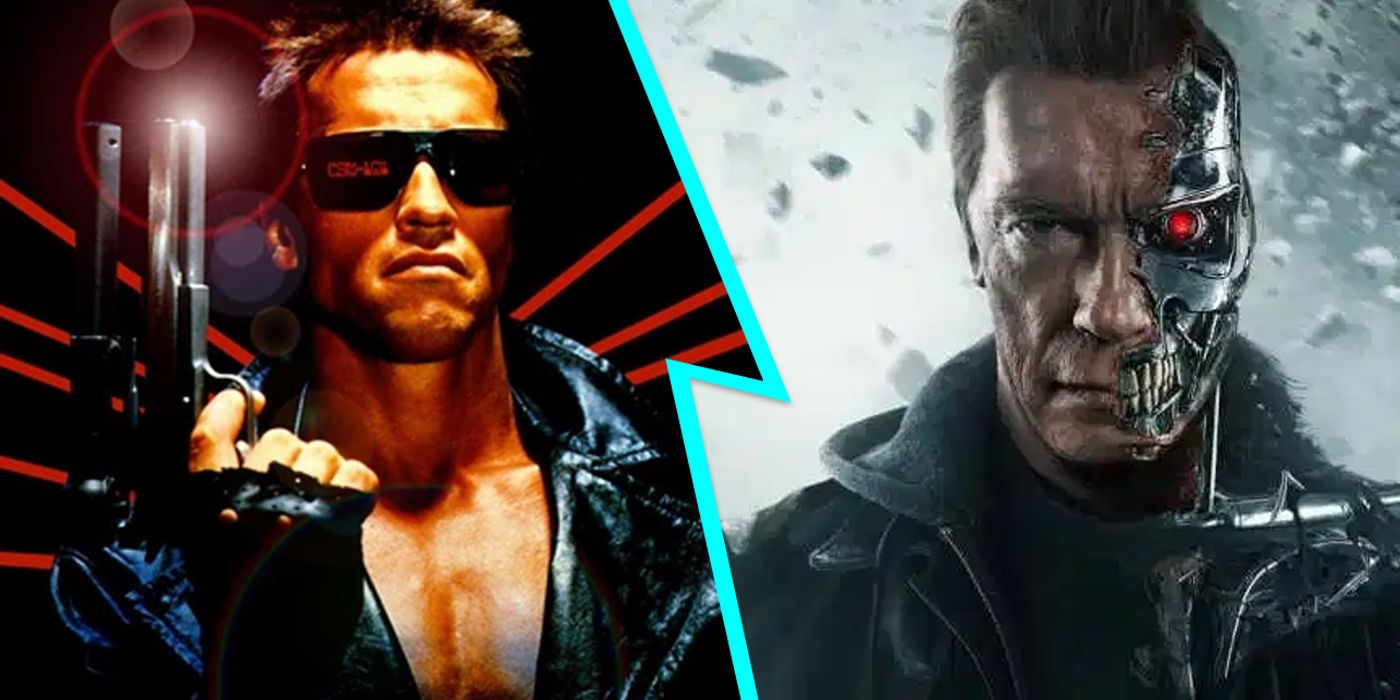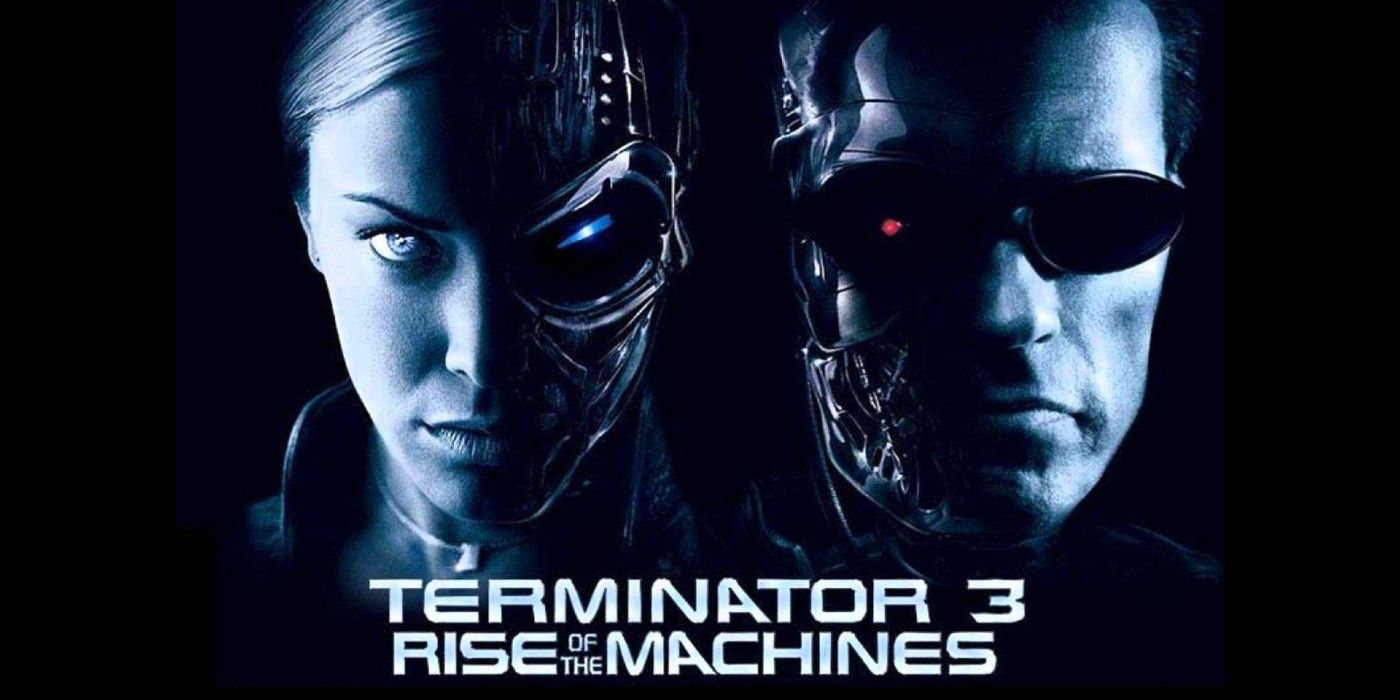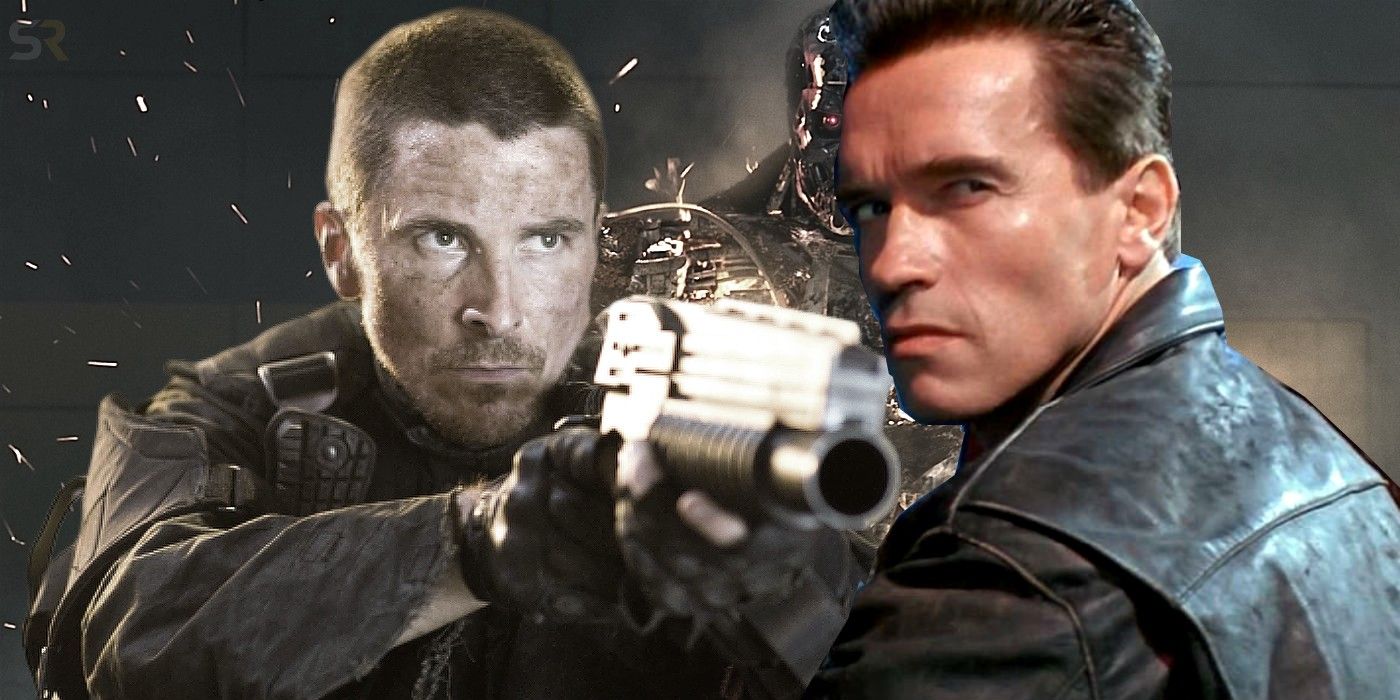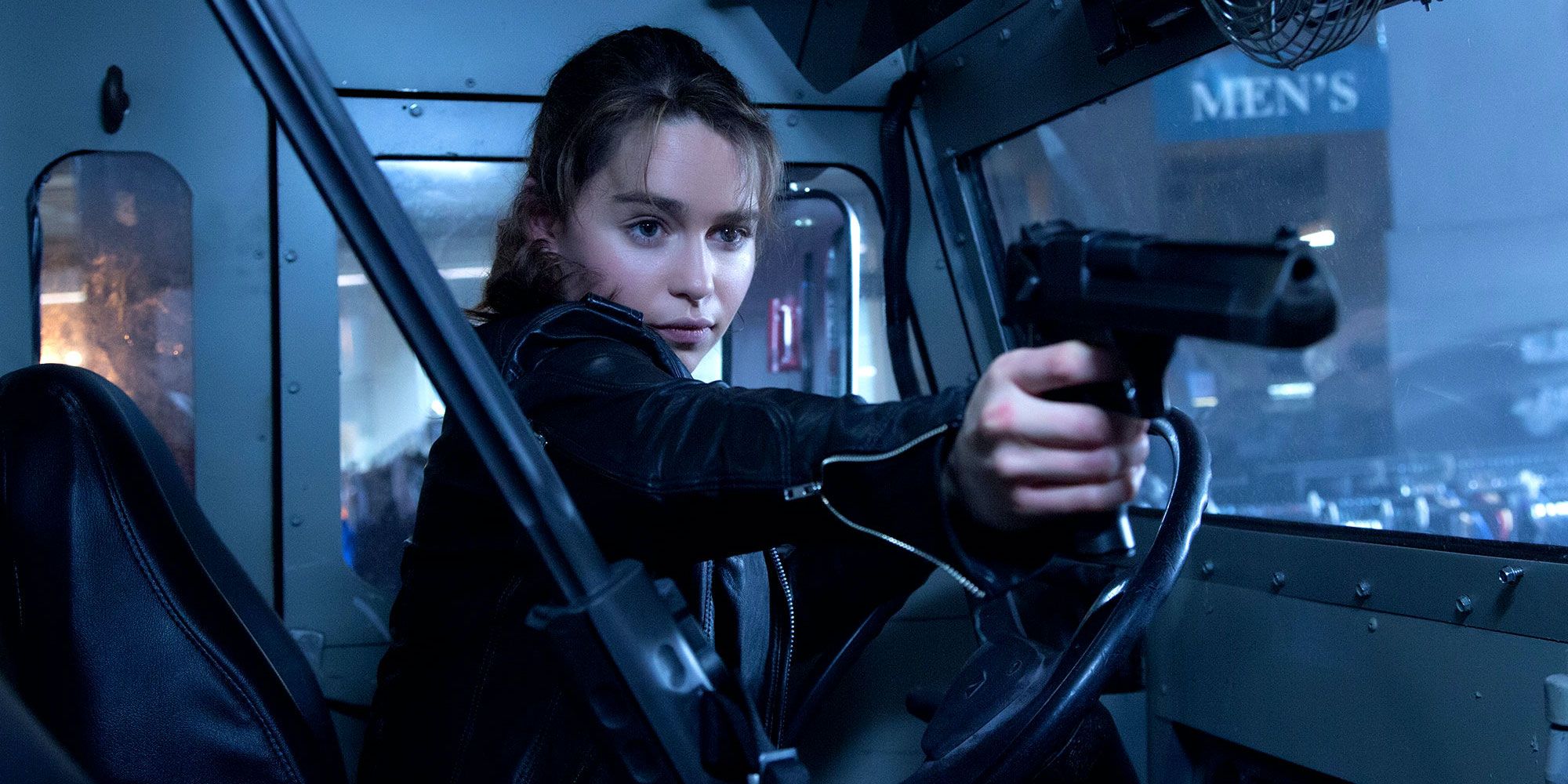While Terminator 2: Judgment Day reached glorious heights of audience and critical acclaim, each subsequent movie contributed to the franchise’s downward spiral into blockbuster irrelevancy. Through four further sequels, no studio or filmmaker has been able to match James Cameron’s two groundbreaking Terminator films and the elements they blended so successfully — specifically intelligent sci-fi, detailed world-building, succinct plotting, relentless action, iconic characters and thoughtful themes and messages. Where did the franchise go wrong?
The Terminator sequels following T2 suffered from a variety of problems. Beginning with rights issues in the mid-'90s that would haunt the franchise for years to come, the sequels featured underwhelming scripts, misguided ideas, constant recasting and an ever-contradictory canon that prevented the series from retaining the audience’s imagination. From 2003’s Terminator 3: Rise of the Machines to 2019’s Terminator: Dark Fate, the series continuously severed its chances to become a lucrative franchise.
The reasons why each Terminator instalment faltered is an enduring topic of debate among movie fans, partially because of the sheer number of failed attempts made over the years to revive The Terminator franchise. Although the sci-fi franchise might be currently dead as a doornail, an autopsy is warranted in order to determine where The Terminator movies repeatedly went wrong.
Terminator 3: Rise of the Machines
Terminator 3 has its genesis during the immense success of Terminator 2. After that film’s $204.8 million triumph at the worldwide box office, Cameron and producer Gale Anne Hurd were both unanimous that a third film would arrive in a few years. To the disappointment of fans, however, it would ultimately manifest without Cameron’s involvement and over a decade later, squarely thanks to the bankruptcy of Carolco Pictures and the complex rights issues that ensued.
In hindsight, Terminator 3 stands as one of the better attempts to relaunch the series, yet suffers from a string of easy-fix problems. It follows T2’s events loyally enough, but is probably too derivative of its predecessors, being yet another time-travel story that incorporates John Connor between two rival terminators. Despite some agreeable casting (Nick Sthal replaces Edward Furlong) and good action set pieces, many fans thought that its play-it-safe approach just wasn’t worth the 12-year wait.
Additionally, at a runtime of just over 90 minutes, there wasn’t much opportunity to match or develop the technical and thematic complexities of T2. The concepts of Skynet and Cyberdyne are given a 21st century “cyberspace” update, but their evolution is glossed over, and the movie consequently seems disinterested in the series’ wider mythology. Also, the removal of the “no fate” theme allowed for a chilling ending, but irked many purist fans who believed that the inevitability of Judgement Day was a needless thematic contrast to Cameron’s movies.
Terminator Salvation
Continuation of the series was warranted after Terminator 3’s impressive financial success. Terminator 4 naturally would have seen the return of director Jonathan Mostow and stars Nick Sthal and Claire Danes, but a new phase of legal issues stalled this from happening, as the project again filtered through several studios who toyed in the production and distribution rights to the Terminator films.
Terminator Salvation was eventually green lit in 2008 with a questionable director and star. While many (correctly) predicted that McG and Christian Bale were misguided choices to lead the series, Salvation still caught fans’ attention for finally depicting the post-apocalyptic future teased in the first three films. Although its Mad Max-style visual palette contrasted with what fans liked, Salvation presented an admirable change of pace that could have potentially rejuvenated the series — but everything about it was a misstep.
Tinged with controversy upon its release (because of a nasty leaked set recording involving Bale), Salvation met with the worst reactions yet for a Terminator film. Critics justly focused on the film’s lack of heart and dynamic energy, and particularly tore Bale’s performance to shreds. The plot and pacing were also a point of contention, with some calling it robotic and one of the worst films of the year. Terminator 3 had also failed in some respects, but Salvation’s terrible reception truly supplied the first nail in the coffin for the series. It effectively ended the “original” continuity of films and set the stage for multiple reboots, which would only muddy the water further.
Terminator Genisys
2015's Terminator Genisys was the confusing reboot to end all confusing reboots. By the early 2010s, the barrage of legal troubles hadn’t settled, and a fifth Terminator, much like the third film, was put into limbo by bankruptcy and a subsequent auction war for the rights. With the distribution rights someway or another ending up at Paramount, Terminator Genisys acquired new talent to put the franchise back on track.
In a jarring experience, Genisys made everything old new again. In a notoriously troubled production, Game of Thrones director Alan Taylor was given the conflicting tasks of rebooting the series, while also keeping some integral ties to Cameron’s movies. At first glance, Genisys presented a clear attempt to win the audiences back by way of some desperate fan service and nostalgia bait, as it faithfully recreated the original’s opening scene, and added in two T-101s, a T-1000 and a gun-toting Sarah who spews out catchphrases. This potential nostalgic appeal was redundant however, given that Genisys was in fact a retcon; it wanted the audience to disregard everything they loved about the series (i.e. the first two films) and settle for a new, contrived and brain-meltingly confusing timeline. Genisys suffered immensely as a result.
It offered no succinct storytelling or character development to latch onto, and got lost down its own maze of plot inconsistencies, misplaced twists, endless exposition and bad acting. Like Salvation before it, Genisys intended to establish a new trilogy of movies, but likewise failed because of a critical mauling and lacklustre financial reception. Franchise fatigue had definitely set in — yet this failure didn’t deter Hollywood from another shot at The Terminator series.
Terminator: Dark Fate
Both Terminator 3, Salvation and Genisys failed to muster a loyal sequel of their own. This was a logical sign to fans that the series needed to stay down, or at least enjoy a long rest before returning to screens. A spark of hope occurred, however, when Deadpool director Tim Miller set about making the natural successor to T2, recruiting back producer James Cameron and stars Schwarzenegger and Linda Hamilton.
With these aces up its sleeve, Dark Fate seemed to promise the exciting reunion film that Terminator fans had been hoping for since the mid-90s. But the underwhelming sequel took several disappointing creative turns, and shockingly, didn’t learn from the crushing mistakes of its predecessors. Most glaringly, the movie refused to budge out of the rigid modern-day setting, making audiences endure yet another story about time travelling Terminators with a protector-assassin dynamic. Also, much of the original film is repeated by Dark Fate's uninspired and boring stand-ins — Skynet is retconned and replaced with the defence system, Legion, and a new hero, Dani, replaces John as humanity’s last hope.
On that subject, purist fans were understandably perplexed by the film’s flippant disregard of John Connor. Similar to Genisys’ numerous retcons, it was argued that erasing John from the mythology removes the emotional punch from the original films and nullifies the sacrifices made for him. Production troubles and Miller and Cameron’s various disagreements apparently helped the film no further, and its failure was ultimately sealed by a spectacular underperformance at the box office. Although some critics were kind, Dark Fate’s financial drop has all but condemned the Terminator series to movie jail once again, and maybe that’s where it should stay.





